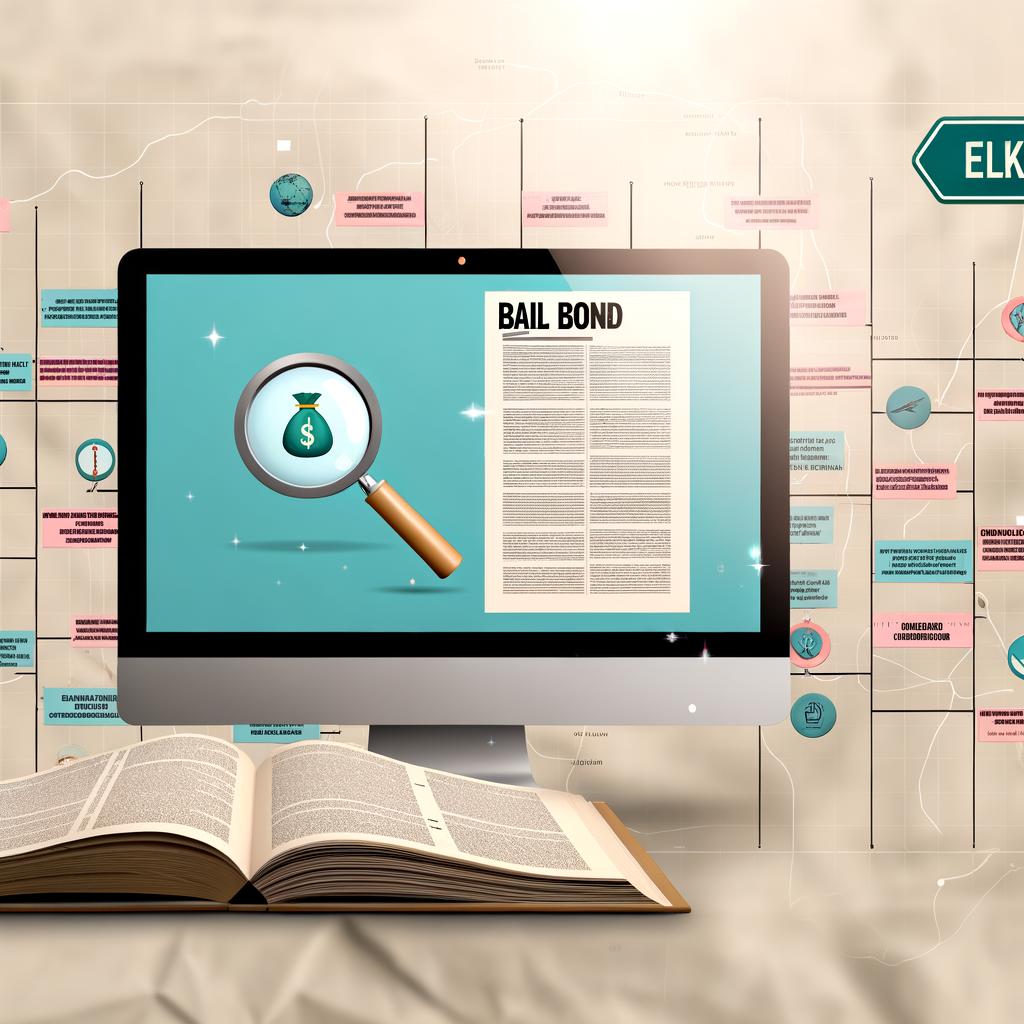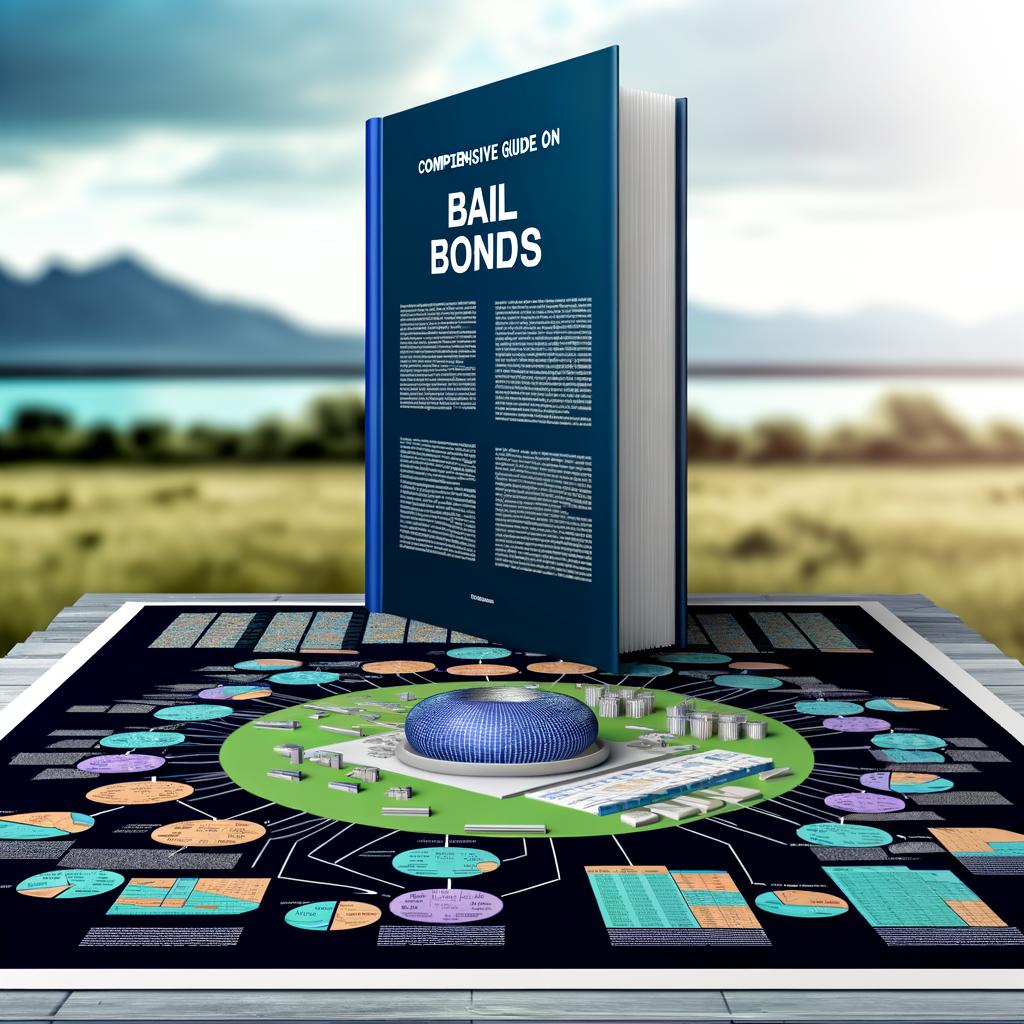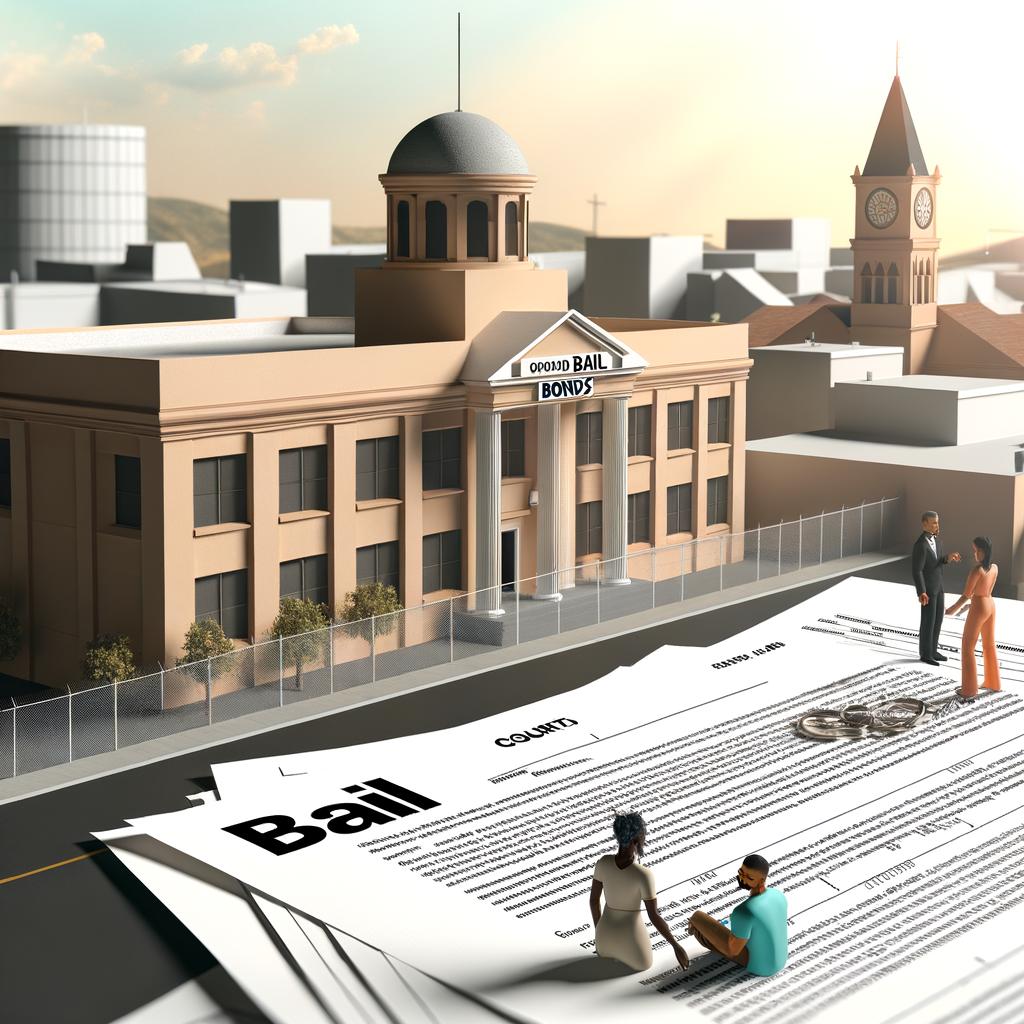
Exactly How Apprehension Records Impact Bail Decisions
Bail decisions are quick, consequential, and often made with incomplete information. Judges rest with a documents that may be just a few web pages thick, yet from that abbabailbonds.com Bail Bonds Los Angeles data they decide whether someone rests in your home or in a cell while their instance moves on. The apprehension record, both the existing occurrence and the individual's prior history, supports much of that choice. When you have actually beinged in accusation courts enough time, you start to see the patterns: what information judges circle with a pen, what they ask prosecutors to clarify, and where defense lawyer can relocate the needle. The apprehension document is not the entire tale, yet it is the tale that obtains reviewed first.
What judges in fact try to find in the apprehension record
Arrest records are not a solitary paper. They are a package: the grievance or probable reason statement, a criminal history printout, often a threat analysis rating, and keeps in mind concerning warrants, failures to show up, supervision standing, and prior bail compliance. A court skims and quits at information that indicate two large inquiries: Will certainly this person return to court, and do they present a risk of injury if released?
A prior pattern of missed court dates gets prompt interest. One or two misses out on from years ago can be described, specifically if they were later resolved. A string of energetic bench warrants, or a recent failing to appear, considers heavily. I have actually seen individuals with severe fees released on reduced bond since they had a spick-and-span look document, and individuals with minor costs remanded as a result of a recent no-show.
Judges also study the nature and recency of prior offenses. An old offense from university seldom matters, while a recent conviction for a comparable violation typically does. The closer the prior is in conduct and timing to the new cost, the more predictive it feels to a careful court. Add in a pending case, and risk perception leaps. Being on probation or parole at the time of arrest frames the new incident as a violation of trust, which often tends to elevate bond or push towards detention.
The narrative in the likely cause section matters as well. Juries pay attention to whether the present offense allegedly involved violence, a tool, hazards, or susceptible victims. They also search for truths that recommend stability or volatility: intoxication, evasion, statements to authorities, visibility of family members at the scene, work details pointed out by police officers, signs of preparing versus impulsivity. Even mundane details, like the offender's address background and size of house, can tip a close call.
How risk obtains converted into bucks or release conditions
Two dangers drive bail: flight threat and risk to the area. Several jurisdictions no more utilize money bond as the default, yet even where Bail Bonds and cash options remain, courts frequently begin with conditions. For low-risk situations, individual recognizance with basic conditions is common. For modest risk, the court may include coverage, check-ins, a stay-away order, or electronic surveillance. For greater danger, the option becomes a mix of tighter supervision and, in some cases, an economic stake.
Here is the typical logic, stated simply. If the document shows solid community connections, steady work, and no history of avoiding court, judges favor launch with minimal problems, unless the existing fee is specifically disconcerting. If the record shows instability and previous noncompliance, the court requires guarantee. That assurance can be an enforceable collection of conditions under a pretrial solutions program, a safeguarded bond that an offender or family members can post, or a bail bond through an accredited representative that will certainly finance the danger for a fee.
The money piece is not approximate, though it can feel this way from the gallery. Lots of courts have informal arrays for certain charges, with adjustments for record-based elements. A novice pacifist felony might draw a modest bond, usually in the low thousands. Add a recent failing to show up, and the number climbs up. Include a probation hold or a tool accusation, and it climbs up again, in some cases by an aspect of 2 or 3. Even courts who choose non-monetary launch will raise the degree of supervision as the document elevates concern.
The duty of Bail Bonds in practice
When a court establishes a secured financial bond, couple of families pay the sum total in cash money. They go to a bond representative, pay a premium, normally 10 percent, and protected release with a bond. The representative is not simply a cashier. A seasoned bail bondsman reads the very same arrest records and assesses risk. If the customer has an untidy warrant background or weak ties, the representative might call for a cosigner, security, more constant check-ins, or they might decline completely. It is an underwriting choice, and it shows the same concerns judges have, just with the representative's money on the line.
From the bench, I have seen judges keep in mind when a credible bondsman agrees to compose a bond on a difficult case. Agents recognize their local court culture and the chances of successful look. They will in some cases provide the court with extra structure: reminders, transportation, sychronisation with defense counsel. A tidy arrest record makes that process simple. A complicated record causes much more problems and often presses the customer to consider non-financial release options with pretrial solutions, if available.
The weight of particular document elements
Not all access in a document lug equal weight. Some issue much more than defendants understand, and some issue less than district attorneys argue.
- Failures to show up. Even a handful brings symbolic weight since it goes directly to the court's institutional problem. A solitary failing years ago with a documented reason and succeeding compliance can be mitigated. 2 recent failures with warrants remain in the court's mind.
- Pending instances. A pending situation reveals present entanglement. When the brand-new fee appears like the pending one, judges often assume elevated risk and set greater bail or add strict conditions.
- Probation or parole standing. Being under guidance when arrested changes the court's structure from first-chance to second-chance reasoning. The judge should account for the supervising firm's action and the chance of technical violations.
- Violent or weapon-related priors. Also older fierce priors put in a gravitational pull on bond choices. The court stresses over rise, especially if today charge has any kind of tip of conflict or a firearm.
- Compliance background. Individuals fail to remember that positive background helps. Finishing prior diversion, ending up probation without infractions, or consistent court looks can soften the impact of an old record.
That list is not exhaustive, however it shows the handful of things that dependably move the needle across jurisdictions.
How the existing apprehension narrative can overcome a negative record
I took care of a case years ago where an accused had two previous failures to show up on low-level residential or commercial property criminal offenses. The brand-new arrest was a felony, yet the likely reason declaration explained a facility family disagreement with qualified evidence that the person had stayed to talk to police officers and had already lined up therapy. The court was ready to establish a high bond up until defense counsel stood up with a letter from the company, evidence of a current lease revival, and a contact from a pretrial services police officer dedicated to once a week check-ins. The prior failures did not disappear, yet the court reframed them as youthful blunders instead of an existing pattern. The offender was released with problems and never missed a date.
The point is not that appeal wins the day. It hardly ever does. Realities do. If the arrest document raises a trust trouble, counter it with trusted details. Provide documentation. Offer particular problems that match the threat. Unclear assurances do not assist. Concrete dedications do.
Prosecutors, protection, and the tug-of-war over the record
Arraignments move fast, but the adversarial system still operates. District attorneys have a tendency to emphasize the worst components of the file, quoting language that recommends threat or trip. Defense counsel does the opposite, filling in context the documents omits. Seasoned legal representatives know where to press. They ask the court to consider dates, to distinguish arrests from sentences, to keep in mind when an old bench warrant was abandoned. They bring hard copies revealing current work or college registration. They will in some cases specify to a limiting order or to a GPS check, not as a giving in of shame, but as a means to satisfy the court's threat calculus without excessive money bail.
There is a sensible lesson right here. If your record has landmines, anticipate them to be stepped on. Do not await the court to notice. Clarify them first, with specificity. If you moved, reveal the lease. If you missed court as a result of a hospital stay, bring the records. If a prior situation was dismissed, have the personality ready. The cleaner and more verifiable the explanation, the most likely the judge is to trust release.
Risk analysis tools and their limits
Many jurisdictions make use of organized danger evaluations that create a rating based in part on apprehension documents. These tools attract greatly from prior failings to appear, age in the beginning apprehension, and prior convictions. They assure consistency, and at times they bring it. A reduced rating can assist a judge feel comfy with recognizance launch. A high rating can push in the various other direction.

The restrictions are actual. These devices can over-weight old misdemeanors or treat a solitary failing to appear the exact same despite context. They occasionally do not record safety factors that matter in a human life, like a new job or a current transfer to secure housing. Judges understand this, which is why you will certainly hear them say that a danger rating is a tool, not a choice. Defense counsel can and need to indicate the inequality when the apprehension record paints an insufficient picture.
When bail is denied regardless of moderate records
Every practitioner has actually seen cases that look like they should cause launch, yet the judge remands. The common thread is the nature of the existing charge, especially when the accusations define targeted violence or intimidated witness intimidation. A moderate previous record can not override a narrative that suggests an effort to obstruct justice. The court's main issue becomes the honesty of the process. In these situations, also a well-structured Bail Bonds service will stagnate the judge unless problems can straight deal with the certain threat, such as strict no-contact orders and verified relocation.
Another scenario: an offender with mental wellness or substance make use of crises and a document dotted with technical offenses. The court may worry that conditions will not help without scientific assistance. A defense team that gets here with a bed day at a therapy center and a transport strategy will do much better than one that just asks for a reduced bond. The apprehension record is not just concerning blame, it is a roadmap of what has or has actually not worked before.
Practical actions offenders and family members can take prior to the bail hearing
The short home window in between arrest and arraignment is frenzied, however there are concentrated activities that enhance outcomes.
- Gather paperwork of stability: pay stubs, enrollment records, proof of residence, letters from managers, treatment appointment verifications, or kid wardship routines. Juries believe paper.
- Identify a liable third party that can show up in court. A family member or company all set to vouch personally carries weight. Their existence signals connections and accountability.
- If bond is most likely, speak to a trustworthy Bail Bonds representative early. Go over collateral, cosigners, and checking assumptions. Having a bond prepared can shorten jail time after a decision.
- Coordinate with pretrial solutions if your jurisdiction provides it. Obtain an evaluation arranged and be prepared to abide by proposed conditions.
- Prepare clear descriptions for any kind of failings to show up or warrants, with days and resolutions. Very own blunders without excuse, then reveal what has changed.
These steps do not assure release, however they offer the court something solid to collaborate with. When the document raises questions, your job is to address them with facts, not hopes.
Variations across jurisdictions
Arrest documents play differently in various courts. Some states have actually approached presumptive launch for many violations and pacifist felonies, making use of problems and guidance rather than cash bail. In those places, the arrest document impacts the intensity of problems greater than whether release occurs whatsoever. Various other territories still depend heavily on schedules and money bond, where a document straight maps to a dollar figure. Urban courts that see the exact same names regularly value conformity background. Rural courts might lean extra on community online reputation and connections, which can help or hurt relying on who turns up for you.
A separate pattern, noticeable in numerous states, decreases making use of bond for a lot of nonviolent instances yet allows apprehension without bail for details classifications, such as weapon offenses or residential physical violence with exacerbated aspects. In those structures, the arrest document functions as a gatekeeper for apprehension hearings as opposed to simply bond quantities. The inquiry ends up being not just how much, but whether any collection of problems can fairly handle the risk.
Common misunderstandings concerning arrest documents and bail
I hear 3 myths more frequently than others. Initially, that just convictions matter. Not real for bond. Arrests, especially recent ones for comparable conduct, influence the danger computation, though courts recognize the difference in between unverified accusations and established regret. Second, that paying bond suggests the court trust funds you. Cash is not depend on; it is utilize. Trust fund originates from conformity history, verified connections, and legitimate plans. Third, that a single bad access in your document dooms you. It does not. You can balance out a prior failing to appear with a solid showing of existing security and an affordable package of conditions.
Defense techniques that straighten with exactly how courts think
The most efficient bail disagreements are slim, factual, and tailored. Defense counsel must match conditions to the record-based danger. If the record shows missed out on court, propose automated message reminders, transport assistance, and regular check-ins. If it shows impulsive conduct linked to drinking, recommend therapy, breath surveillance, and a time limit. If there is a safety problem flagged by the apprehension report, recommend a no-contact order, moving to a various address, and GPS exclusion zones. The court wants to see that the strategy talks to the trouble the record identifies.
I have actually likewise seen advise be successful by reframing the document's timeline. Sequencing issues. A cluster of old misdemeanors followed by four peaceful years, a new job, and family obligations is a very different threat profile than constant recent activity. When counsel strolls the judge via a timeline with supporting papers, the prior chaos begins to appear like a shut phase rather than a permanent trait.
When to consider Bail Bonds versus non-monetary options
If a jurisdiction uses durable pretrial solutions, and the document shows manageable threats, pushing for non-monetary problems makes good sense. It prevents the economic problem and the nonrefundable costs that include Bail Bonds. That said, there are times when a bond assists. Some judges make use of money bond as a proxy for severity. In a close instance, suggesting a moderate safe bond alongside guidance can satisfy both the demand for structure and the court's comfort degree. Family members ought to evaluate the expense, the likelihood of compliance, and the rate of release. A bondsman offered to upload rapidly can reduce direct exposure to jail risks in the very first 24 to 48 hours.
From a practical point ofview, if the court signifies a dollar quantity within reach, having a bond agent lined up stops delays that can extend into days as a result of documentation and verification. Make sure the representative discusses all terms, consisting of possible fees for healing activities if court days are missed.
The human side courts notice however submits hardly ever capture
Arrest documents squash individuals into codes and days. The live hearing lets some humanity back in. Judges notice that remains in the gallery. They observe when a companion or moms and dad stands, all set to talk if allowed. They notice considerate interest, that a defendant is dressed for court, that they are not intoxicated or perturbed. They also see when guidance understands the instance personally instead of checking out from a screen. None of this substitutes for a solid record or plan, yet it colors the margins in ways that matter on the fence-line decisions.

On the opposite side, courts likewise notice when accuseds roll their eyes at conditions, when they disrupt, or when they suggest concerning the charge rather than concentrate on bail. The hearing is not the trial. The goal is to give the court self-confidence that you will follow orders and show up. That is the currency that counts.

Looking ahead without wishful thinking
Policy debates regarding bond frequently chat past the frontline experience. The apprehension document will certainly remain main to bail decisions due to the fact that it is the most prompt proof of how an individual has engaged with courts and police. Reform can refine the weight of various entrances and invest in far better non-monetary assistances. It can press systems to compare an old, unnecessary acne and a recent, telling pattern. However as long as courts are asked to make fast decisions with limited time, they will turn to the entries that seem most anticipating: failings to show up, guidance status, recency and similarity of offenses, and the facts of the existing arrest.
For offenders and households, that fact indicate sensible preparation. Tidy up exceptional warrants prior to they snowball. Maintain records of employment and housing. Address substance concerns with recorded treatment. If you are jailed, created a tight package that answers the concerns your apprehension record increases. And if cash bail becomes part of the equation, technique Bail Bonds with clear eyes, recognizing both the expense and the obligations.
A bond hearing is a trust discussion, performed in the compressed language of apprehension documents and problems. Your job is to give the court sufficient reasons to state yes to launch, and then to see to it the following entrance in your document is an easy one: appeared as ordered.
ABBA Bail Bonds 900 Avila St STE 101 Los Angeles, CA 90012 (213) 296-0901 https://abbabailbonds.com